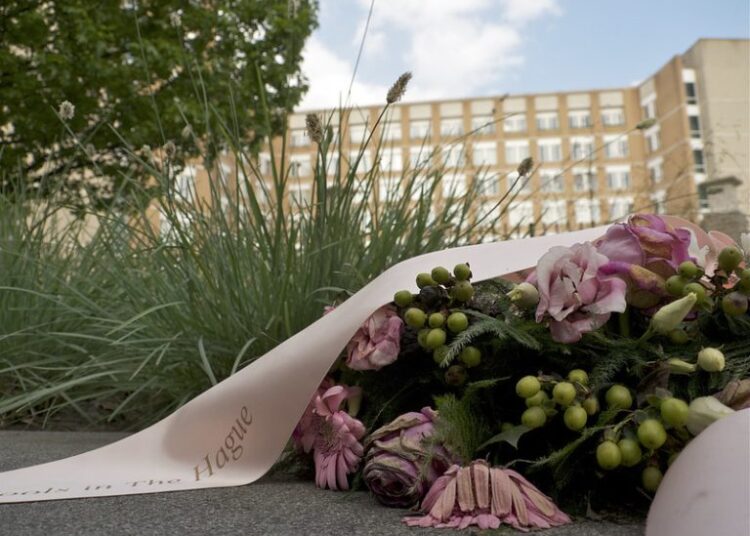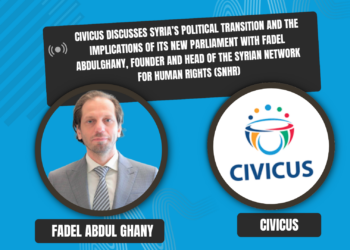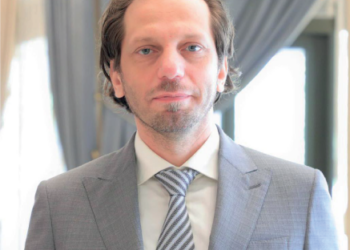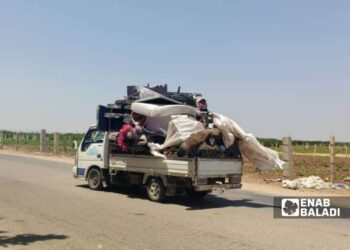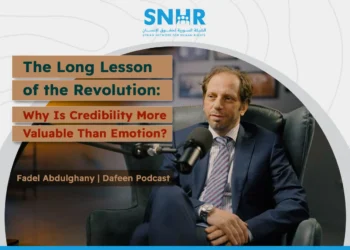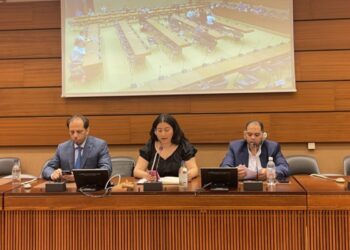Fadel Abdulghany, Head of the Syrian Network for Human Rights on the Legacy of the Ghouta Attack on the People of Syria
The Syrian regime’s chemical weapons attack on Eastern Ghouta had a profound and lasting impact not only on the people of Ghouta, but on Syrian society as a whole, however, the people of Ghouta were the most affected.
Mental health impact: Post-traumatic stress disorder, anxiety and depression persist among some survivors and witnesses, particularly children, with some survivors suffering from nightmares related to the attacks.
Due to the invisible nature of chemical weapons, the horrific attack caused a collective trauma that affected all Syrians, even those who were not directly affected.
Intergenerational trauma that is passed on to children who witnessed the attack and grew up, as well as children born after the attack, and this secondary trauma is passed on to them through families, community conversations and the media, which creates cases of anxiety and depression among them.
Physical health impact: According to the SNHR’s database, 1,144 people,including 99 children and 194 women were killed, and 5,935 others were injured in the August 2013 Sarin gas attack in Ghouta.
Some of those injured to date are [still] experiencing respiratory problems, including difficulty breathing. And neurological problems, including memory or cognitive impairment.
We have received reports of some birth defects and developmental problems in children born to parents who were attacked.
It has been very difficult to record fertility problems, but we have indications that they have occurred.
Social and community impact: The massive number of victims and the subsequent displacement of tens of thousands have disrupted social structures and traditional community ties.
Loss of confidence in international bodies that failed to prevent the attack and hold the Syrian regime accountable, particularly after the Syrian regime launched 184 attacks after the Ghouta attack and continues to enjoy complete impunity.
A state of collective mourning prevails on the anniversary of each year due to the massive number of victims left behind by the attack.
Economic impact: The displacement of the population following the attack has had very negative economic repercussions, as displacement leads to the loss of homes and shops, and the fragmentation of social relations. The vast majority of the displaced have not returned to Ghouta to this day for fear of revenge by the Syrian regime.
The health problems of many survivors have also increased the negative impact of their economic situation.
Political Implications: The Syrian regime has increased the pace of killing and violence and has arbitrarily killed tens of thousands of detainees in detention centers, because the regime was confident of its impunity after committing this horrific attack in front of the eyes of the entire world.
The Syrian regime no longer cares for any political solution, which has contributed to prolonging the armed conflict in Syria to this day.
As we look forward to the future the survivors of the 2013 attack are seeking:
1. Justice and accountability: Survivors seek justice and accountability for perpetrators of chemical attacks, including the Syrian regime and its Russian and Iranian allies.
2. Reparations and compensation: Survivors and their families need justice and compensation for the harm they suffered, including physical and emotional trauma, loss of property, and displacement.
3. Medical and psychological support: Survivors need medical and psychological support to address the long-term effects of chemical exposure, including physical disabilities, treatment for chronic respiratory problems, regular cancer screenings and specialized oncology care, mental health services, including trauma-informed therapy.
4. Protection and Safety: Survivors need protection and safety from further attacks and persecution, including access to safe housing and livelihoods.
5. Economic Support: Job training and employment assistance for those unable to continue previous work, financial assistance to cover ongoing medical expenses, and support for small businesses in affected communities.”
